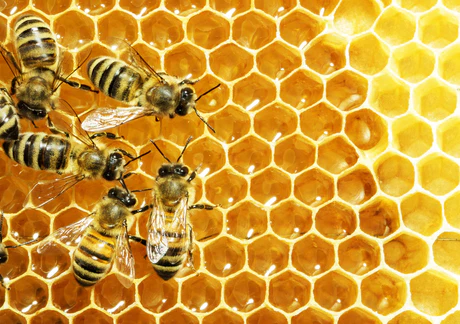What's the whole buzz about?? Maybe honey bee can be sustainable and vegan
Are you sweet on honey but concerned about the ethics and sustainability of the beekeeping industry? Join us as we buzz through the debate over whether honey is vegan, the environmental impact of commercial honey production, and the potential benefits and drawbacks of backyard beekeeping. Get the buzz on beekeeping now!

Beekeeping is a time-honored practice that has been around for centuries. It involves the management of bees to produce honey and other products such as beeswax, propolis, and royal jelly. However, in recent years, concerns have been raised about the ethics and sustainability of the beekeeping industry, particularly when it comes to honey production.
One of the most hotly debated topics is whether or not honey is vegan. While there is no clear consensus on this issue, many vegans argue that exploiting animals for their products goes against the principles of veganism. In the case of honey, bees are not killed in the production process, but they are still exploited for their labor and products.

Others argue that if bees are well-cared for and not exploited for profit, honey can be considered vegan. For example, if the bees are allowed to keep enough honey to sustain themselves through the winter, and only the excess honey is harvested, then the practice may be considered ethical. This viewpoint is supported by organizations such as the Vegan Society, which states that "some vegans may choose to consume honey from ethical beekeepers who prioritize the welfare of their bees."
However, the commercial production of honey can have negative environmental impacts. The practice can contribute to habitat loss and the decline of wild bee populations. Furthermore, the selective breeding of honeybees for traits such as docility and honey production can have negative impacts on their health and genetic diversity.
In recent years, there has been a growing interest in backyard beekeeping as a more sustainable and ethical alternative to commercial honey production. Backyard beekeeping can support local pollinators and provide a source of honey without the environmental impacts associated with large-scale commercial production. Additionally, backyard beekeeping can be a way to educate people about the importance of pollinators and the need to protect their habitats.

However, there are also ethical concerns associated with backyard beekeeping. Bees are social creatures, and removing their honey supply can cause stress and harm to the hive. To practice backyard beekeeping responsibly, beekeepers should leave enough honey for the bees to survive the winter, avoid the use of pesticides and other harmful chemicals, and provide natural habitats and food sources for pollinators.
There are also potential benefits to backyard beekeeping. Bees play a vital role in pollinating crops and other plants, and backyard hives can support local pollinators and provide a source of honey without the environmental impacts associated with large-scale commercial production. Additionally, backyard beekeeping can be a way to educate people about the importance of pollinators and the need to protect their habitats.
One example of ethical and sustainable beekeeping practices is Warre beekeeping. This method involves building a hive that mimics the natural habitat of bees, allowing them to build their own comb and live in a more natural environment. This method is often used by backyard beekeepers and is considered more sustainable and ethical than traditional commercial beekeeping practices.

So, what is the conclusion? The question of whether honey is vegan is a contentious issue that depends on individual perspectives and beliefs. However, it's clear that the ethics and sustainability of honey production depend on the methods used. Similarly, the sustainability of backyard beekeeping depends on prioritizing the well-being of the bees and minimizing the impact on the environment.
Ultimately, it's up to each individual to decide whether or not honey fits into their own ethical and environmental values. However, it's important to consider the impact of honey production on the environment and the welfare of the bees involved. By supporting ethical and sustainable beekeeping practices, we can help protect these important pollinators and the ecosystems they support.
Sources:
Vegan Society: https://www.vegansociety.com/go-vegan/definition-veganism
Bee Informed Partnership: https://beeinformed
.png)